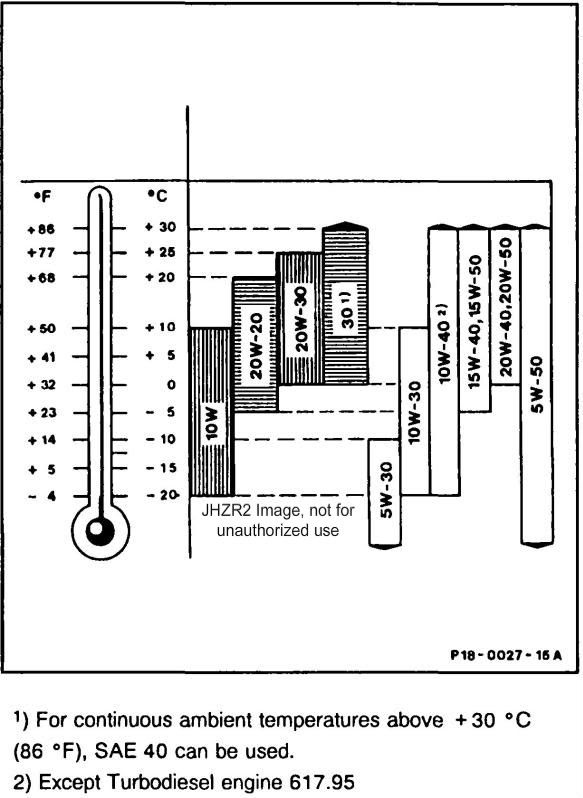JHZR2
Staff member
Hi,
Im changing over to rotella in my 82 MB diesel, and so picked up some sae 30 rotella because it is cheaper and I wanted to try a single grade lube.
My temp/viscosity chart looks like this:

So you can see the range for sae 30, and also when running 40 is applicable. FYI summertime startup temp viscosities are as follows:
Rotella 15w-40 is 120 cst at 40C
Rotella SAE 30 and 40 are 107 and 120 respectively.
Rotella 5w-40 is 87.
So while a 5w-40 will pump a bit faster, the others will all flow roughly the same at startup in a heat wave, it seems to me.
But since the sae30 is rated up indefinitely in the chart shown, and sae40 has been blessed for use over 30C, is there a practical temperature limit beyond 30C to run sae30, and beyond which 40wt really is the lube of choice?
Any insight would be appreciated.
Thanks!
Im changing over to rotella in my 82 MB diesel, and so picked up some sae 30 rotella because it is cheaper and I wanted to try a single grade lube.
My temp/viscosity chart looks like this:

So you can see the range for sae 30, and also when running 40 is applicable. FYI summertime startup temp viscosities are as follows:
Rotella 15w-40 is 120 cst at 40C
Rotella SAE 30 and 40 are 107 and 120 respectively.
Rotella 5w-40 is 87.
So while a 5w-40 will pump a bit faster, the others will all flow roughly the same at startup in a heat wave, it seems to me.
But since the sae30 is rated up indefinitely in the chart shown, and sae40 has been blessed for use over 30C, is there a practical temperature limit beyond 30C to run sae30, and beyond which 40wt really is the lube of choice?
Any insight would be appreciated.
Thanks!
